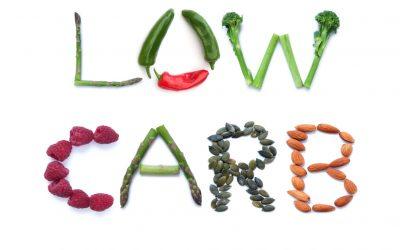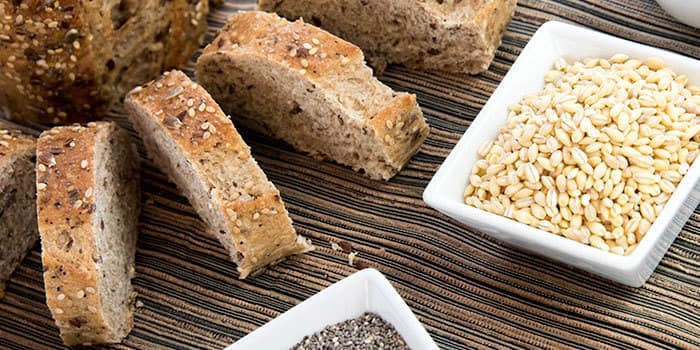6 Do’s and Don’ts to a Healthy Low-Carb Diet
6 Do’s and Don’ts to a Healthy Low-carb Diet
 You know it and research backs it up: Low-carb diets are effective in shedding off your unwanted pounds in almost the same way as reduced-calorie diets and low-fat diets. If you have been thinking about getting into one, then it could be a good choice for you. Before you start however, you have to make sure that your idea of a low-carb diet is not only one which will help you lose weight effectively but make you healthy as well. According to Holly Klamer, MS, RD., people’s definition of a low-carb diet can be unclear, but generally, it refers to a diet that has less than 45 to 65% of your total calories daily from carbohydrates. It is characterized by limitations on the consumption of refined grains, white bread, potatoes, and pasta to name a few. What it pushes for is whole grains, lean protein, non-starchy vegetables, and fruits with low glycemic index.
You know it and research backs it up: Low-carb diets are effective in shedding off your unwanted pounds in almost the same way as reduced-calorie diets and low-fat diets. If you have been thinking about getting into one, then it could be a good choice for you. Before you start however, you have to make sure that your idea of a low-carb diet is not only one which will help you lose weight effectively but make you healthy as well. According to Holly Klamer, MS, RD., people’s definition of a low-carb diet can be unclear, but generally, it refers to a diet that has less than 45 to 65% of your total calories daily from carbohydrates. It is characterized by limitations on the consumption of refined grains, white bread, potatoes, and pasta to name a few. What it pushes for is whole grains, lean protein, non-starchy vegetables, and fruits with low glycemic index.
With so much information out there about the infamous low-carbohydrate diet, it is easy to get lost in the pandemonium. In this case, you need a straightforward “to do” and what “not to do” when you are following a low-carb diet and aiming to lose some pounds in a healthy manner. The goal is to nourish your body and become fitter without missing out on nutrition.
1. Do understand your portion sizes
Understanding your portion sizes means being able to estimate how much you will need for proper nutrition. You have to know exactly how much a single portion of steel-cut oats or brown rice is so you do not underestimate or overestimate. In this way, you do not overeat and will be able to supply your body with enough nutrients for its needs.
So you are well-guided on proper portion sizes, you can opt to use Portion Fix’s containers, color-coded to make it easy to plan your meals and at the same time, lose weight. Beachbody’s Denis Faye, executive director of nutrition, expressed that through the Portion Fix plan, you will be able to achieve that healthy balance of the macronutrients protein, healthy fats, and carbohydrates. Of the total daily calories, 40% will be from carbs, 30% from fats, and 30% from protein. However, these should be from foods that are both unprocessed and unrefined to receive optimal nutrition.
2. Don’t eat too many carbs
The whole point to a low-carb diet is not to consume too many carbs. An emphasis has been placed on this because this is the most challenging aspect of any weight management program. What would be excessive carbohydrate consumption is different for each individual based on activity level and metabolism but generally, more than 45% of your total calories daily is considered high-carbohydrate diet.
Thing is, if your total food consumption for the day is made of half carbohydrates or more, then you are missing out on the other macronutrients protein and fats. You to have protein to help build your muscles. Meanwhile, healthy fats aid in the absorption of nutrients, provide you with energy, and facilitate the growth and function of your cells.
-
Do appreciate the nutritional value of carbohydrates
There is a reason why carbs are an important part of a balanced diet. There has been a lot of hate going on, making carbohydrates the enemy for those who are trying to lose weight. The truth is that however, carbs play a big role in sustaining your body with the energy it needs to function and do your activities throughout the day. It can even fuel your gym time and allow you to burn more calories in the process.
The key is to moderate your consumption of carbs so you benefit from its nutritional value without negatively affecting your efforts to lose some pounds. Nutritious carbohydrates include the fruits, beans, whole grains, and vegetables that give you potassium, B vitamins, vitamin C, and fiber. Insufficient consumption of carbs will result in a deficiency in these areas.
4. Don’t eat too much unhealthy fat
Just because you are on a low-carb diet does not mean that you can go all out with other foods like pork, beef, butter, eggs, cheese and other food groups that are high in trans fat or saturated fat. Sharon George M.S., R.D., C.D.N. says that a trans fat-rich diet is not healthy for the heart. It can cause the liver to produce bad cholesterol or LDL cholesterol more than ever. The American Heart Association agrees that too much of the bad cholesterol over the good cholesterol will put you in higher risks for specific types of disease.
The same goes for saturated fat – you have to monitor your intake if you want to maintain cardiovascular health. A research review through the American Journal of Clinical Nutrition revealed that saturated fat has to be replaced with mono- and polyunsaturated fats like seeds, avocados, nuts, salmon, and walnuts if healthiness is to maintained. The consumption of refined carbs also has to be limited and this includes rice, pasta, bread, pastries and cookies.
5. Do consider activity level in determining carbohydrate intake
Carbohydrates fuel your health, exercise, and even your brain. When trying to measure how much carbs you consume, you should consider your activity level as well. The ideal amount of carb intake will depend on your activity level and the number of pounds that you aim to lose. To ensure that you do not gain weight or that you lose some weight, your carb intake should be less than 40% of your daily calories when you exercise twice to thrice a week and move often during the course of your day. This will secure the fuel needed to energize your body and leave nothing that you cannot burn with more frequent exercise.
Just remember to go for the whole grain carbs like veggies, fruits, quinoa, wild rice, and sweet potatoes.
-
Don’t consume too much protein
Because it is supposed to be low-carb, one would think that the diet should make up for it with high amounts of protein. It is protein that breaks down into the amino acids that are the building blocks of muscles. Protein also aids in muscle recovery. Accordingly, because you will consume less carbs, you will need to consume more protein. This is especially true when you workout and you want to really crush it. However, it is imperative that you do not overdo it.
What happens when you lessen your carb intake is that the body will start to break down the stored carb sources. Once they are depleted, the body then will alter fat and protein into carbohydrates. This process of converting non-carb sources into glucose so that your blood sugar levels are regulated is called glucogenesis. Meanwhile, amino acids cannot be stored to sustain long-term energy that the body converts the excess protein into fat or glucose storage. When this happens, the effect of a low-carb diet will simply be negated and you will not lose weight. As such, you cannot also have too much protein. A solid 30% of protein for your diet is an ideal goal.
Are you ready to lose weight, build muscle, or feel more fit? Join Beachbody On Demand, and get unlimited access to Beachbody’s world-famous programs, including 80 Day Obsession, 21 Day FIX®, Insanity, P90X® and 100’s more. Don’t miss out on your chance for amazing results. Sign up today!






